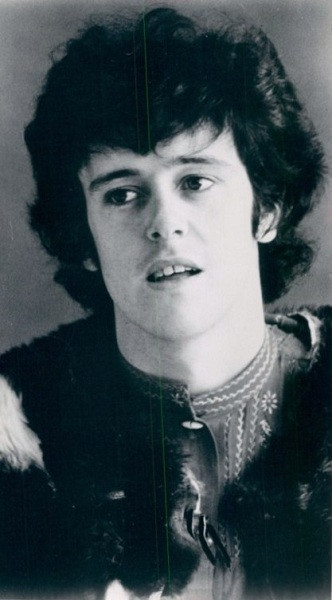


NEWS:
22 hours this month including two sessions and a special tribute to CAN
Artist Info
|
Donovan  Image from Discogs  Donovan Philips Leitch (born May 10, 1946 in Maryhill, Glasgow), better known as simply Donovan, is a Scottish singer, songwriter, and musician. Originally a '60s folk singer, as the decade progressed Donovan cultivated his own unique eclectic sound, mixing elements of folk, pop, jazz, world music and more, often with a twinge of psychedelia. His most well-known work was suffused with altruistic political overtones, making him an iconic figure of the "flower power" counter-culture of the '60s. Donovan Philips Leitch (born May 10, 1946 in Maryhill, Glasgow), better known as simply Donovan, is a Scottish singer, songwriter, and musician. Originally a '60s folk singer, as the decade progressed Donovan cultivated his own unique eclectic sound, mixing elements of folk, pop, jazz, world music and more, often with a twinge of psychedelia. His most well-known work was suffused with altruistic political overtones, making him an iconic figure of the "flower power" counter-culture of the '60s.Donovan came to fame in the United Kingdom in early 1965 with a series of live performances on the television pop series, Ready Steady Go!. He first hit the charts in 1965 with his single "Catch the Wind", continuing on with a string of hits, most of them produced by Mickie Most. Donovan's 1966 Sunshine Superman marked not only a transition to the burgeoning psychedelic scene, but is also viewed as a formative album in its genre, inspiring countless contemporaries. His 1967 double album A Gift from a Flower to a Garden—the first major album released as a boxed set—completed the transition from beat poet folkster to hippie troubadour. As a close friend of The Beatles, he traveled with them to India during their stay at the ashram of Maharishi Mahesh Yogi, and taught them the "clawhammer" finger-picking style, which is featured on several tracks on their seminal 1968 double album The Beatles, better known as "The White Album." The decline of Donovan's commercial popularity coincides roughly with his split from Most in 1969, as well as gradually lessened interest in psychedelics by artists and the record-buying public alike. With the advent of punk rock during the mid-'70s, Donovan, now viewed as a "nice boy" '60s relic, truly fell from favor. Music critics' tastes too had changed; Donovan's new product, while still quirky and experimental, earned little but scorn and derision. As the decades progressed, Donovan would record and perform only sporadically, often separated by several years. Donovan's career went through a revival of sorts with the emergence of Britain's rave scene in the '90s. As a result, his most famous works were reissued, and once again viewed favorably by critics. With the release of the back-to-basics Rick Rubin-produced Sutras in 1996, Donovan's career settled into a comparatively steady stream of new releases, coupled with archival material and various reissues. He was inducted into the Rock and Hall of Fame in 2012. Read more on Last.fm. User-contributed text is available under the Creative Commons By-SA License; additional terms may apply. Artist biography from last.fm Some other places to look for information: last.fm Discogs MusicBrainz |
